Monopotassium phosphate, also known as MKP, is a fertiliser used to provide phosphorus and potassium for plants. It is the basis of many fertilisers and is very soluble in water. Along with monopotassium phosphate, potassium sulphate and potassium nitrate are also used. Phosphorus is one of the 12 essential nutrients for plant growth and development and is one of the 3 main macronutrients.
IDENTIFICATION AND PROPERTIES
Name: Monopotassium Phosphate
Synonyms: Potassium dihydrogen orthophosphate
Chemical formula: KH2PO4
EC: 231-913-4
CAS : 7778-77-0
- Physical state: Solid (Crystalline)
- Colour: White
- Odour: Odourless
- Melting point/ Freezing point: 253ºC
- Initial boiling point and boiling range: >450ºC
- Flammability (solid/gas): Non-flammable
- Solubility(ies): Freely soluble in the following materials: cold water
- Solubility in water: >100 g/l @ 20ºC
- Explosive properties: None
USES
- Industrial use for preparing chemical mixtures
- Professional preparation of fertiliser products
- Professional use as farm fertiliser: loading and spreading.
- Professional use as fertiliser in greenhouses.
- Professional use as liquid fertiliser in the open field (e.g. fertigation).
- Professional use as fertiliser: maintenance of equipment.
SAFETY DATA SHEET
Download the safety data sheet for MKP phosphate: MSDS MONOPOTASSIUM PHOSPHATE
OTHER INFORMATION OF INTEREST
Information on plant nutrition according to crop type: Fertilisers - crops
USES MONOPOTASSIUM PHOSPHATE
Industrial distribution.
Industrial use for the preparation of chemical mixtures.
Professional preparation of fertiliser products.
Professional use as on-farm fertiliser: loading and spreading.
Professional use as fertiliser in greenhouses.
Professional use as liquid fertiliser in the open field (e.g. fertigation).
Professional use as fertiliser: maintenance of the equipment.
MONOPOTASSIUM PHOSPHATE FERTILISER
MKP soluble monopotassium phosphate is a loose crystalline powder that dissolves in water very easily and without leaving any residue. It can be applied using any fertigation system. The phosphorus and potassium it contains, as well as the absence of nitrogen, make it perfect for the fruit setting period or in the final period of the crop, when the supply of nutrients must be very controlled.
MKP is a high purity fertiliser that does not contain chlorine, sodium or heavy metals. It can be applied together with any soluble fertiliser except those containing calcium or with concentrated magnesium solutions in a neutral medium. As it does not contain ammonium nitrogen, its use is recommended for hydroponic crops.
The phosphorus present maintains the Stable pH around 4.5. This pH buffering characteristic of MKP is maintained in chemical mixtures, which also makes it suitable for improving the effectiveness of treatments that require a pH in that range.
PHOSPHORUS IN PLANTS
Phosphorus is one of the 12 nutrients that plants need for growth and development. Phosphorus plays a vital role in all processes that require the transfer of energy in plants, as it is involved in metabolic processes such as photosynthesis and energy transfer, as well as in the synthesis and degradation of carbohydrates. One of the ways of supplying phosphorus is with monopotassium phosphate.
How Phosphorus Affects Plants
Phosphorus deficiency for plants causes them to develop a purple colour on leaves; symptoms appear on old or dry leaves on lower leaves; generally yield loss, delayed maturity, poor forage quality of fruits, vegetables and grains are observed.
Phosphorus deficiency causes a reduction in leaf growth as well as in the number of leaves and root growth, resulting in less root mass to explore the soil for water, so that poor nutrient uptake depresses carbohydrate utilisation processes and continues production through photosynthesis, which results in the accumulation of carbohydrates and the development of dark green leaves.
Excess Phosphorus
Good control of chemical elements leads to disease resistance in plants, and in the case of phosphorus it can be obtained directly from nature. It is found with other elements in combination with which phosphates are formed.
Phosphorus enables optimal development of root growth at the beginning of the crop, thus establishing a stronger and healthier plant. However, too much phosphorus blocks the absorption of many nutrients such as calcium, copper, iron, magnesium and zinc.
How To Provide Phosphorus To Plants
The chemical used to supply phosphorus to the plants is the monopotassium phosphate
The phosphorus or biochemical phosphorus cycle naturally occurs in a closed cycle; living organisms feed on phosphorus either through decomposition processes, phosphates or phosphate rocks. These come into contact with plants through the soil, while animals acquire phosphorus through feeding on these plants.
| Product |
Ref. |
Document |
| Monopotassium Phosphate |
ALQ0025 |
Material Safety Data Sheet MSDS:
EN  
|
| Monopotassium Phosphate |
ALQ0025 |
Technical specifications |
You can also see the Material Safety Data Sheets (MSDS) of all products in this section:
MSDS
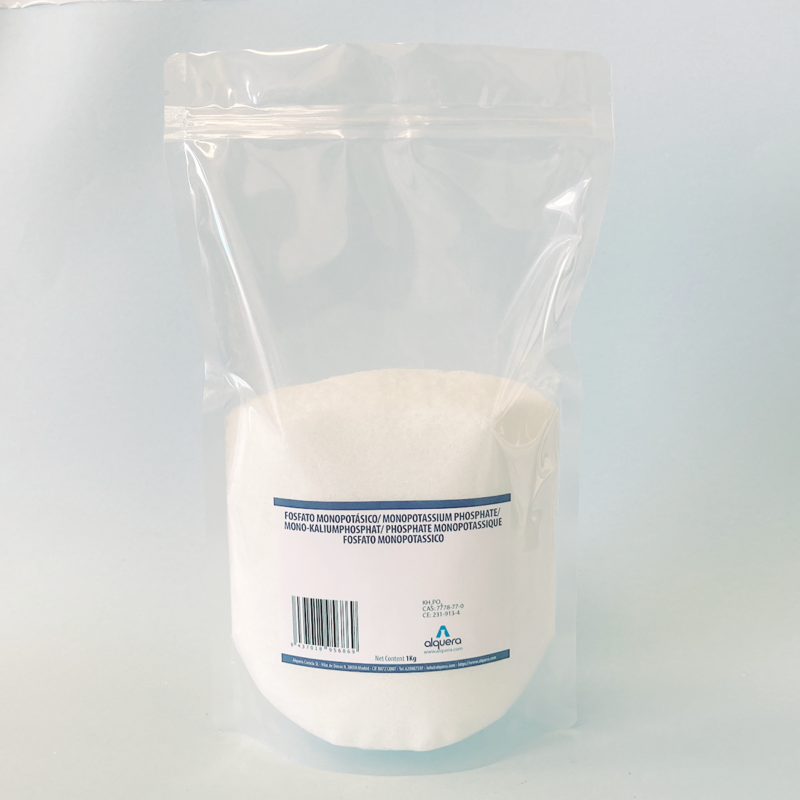
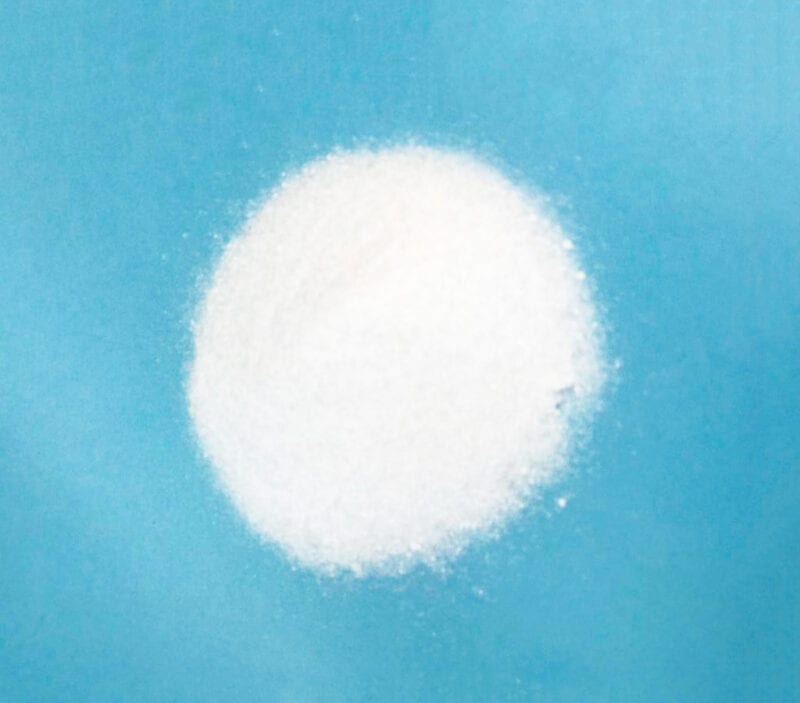
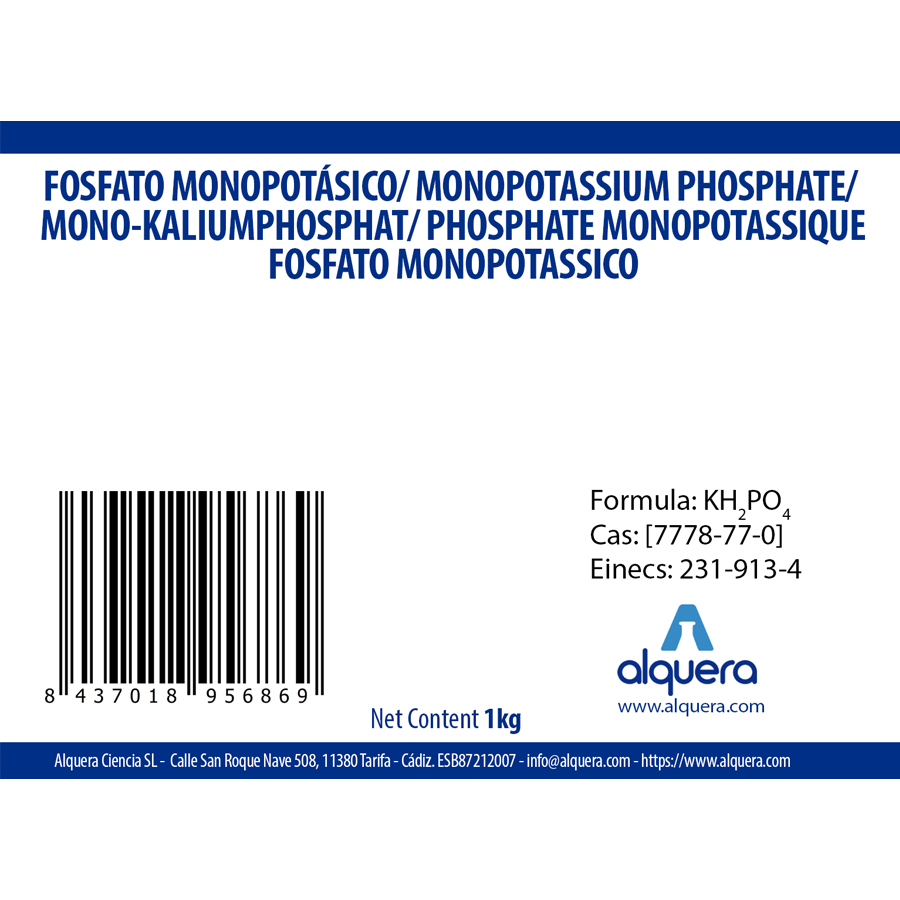
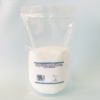
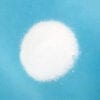
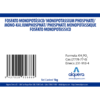
Lucas -
Received very quickly, I am very happy, I use it for my aquarium and it is the best that I have tried and that has worked best for me, very happy.
I will place another order soon